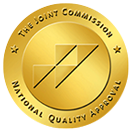In a nutshell, neuroplasticity refers to the idea that the brain’s structure is flexible and can be altered (even in adulthood). PsychoNeuroPlasticity (PNP) is the use of treatment methods and protocols such as Neurological Technologies, Sonic Stimulation Therapy, Biofeedback, Imagery, Mindfulness, and Breathing Techniques to rewire, or “renew,” the brain patterns in order to produce lifelong changes in behavior, thoughts, and emotions.
Uses for Psychoneuroplasticity
Due to the effectiveness of PNP, it has become increasingly popular for the treatment of addiction and co-occurring disorders as well as re-training of the brain. Researchers show that PsychoNeuroPlasticity works especially well in the context of goal-directed therapeutic programs, where the strengths and positive attributes of the client are reinforced whereas the dysfunctional patterns of emotions, behaviors and mental functions are effectively altered with various techniques and protocols specific to the clients’ needs.
Drug Use, Brain Damage and Psychoneuroplasticity
According to findings in Neuroscience & Biobehavioral Reviews and Journal of Neuroscience, addiction alters the neuronal mechanisms of plasticity in the brain, inhibiting the individual from remembering things or recovering from injuries or disorders. Damage to the brain caused by addiction, toxicity, and inflammation can often be solved with surprisingly simple solutions. As repetitive drug use leads to functional impairment and inflammation, so will consistent PNP therapies restore brain functioning and reduce inflammation for a healthier, smarter, more efficient neurological functioning. You will see real long-lasting changes in the way a loved one makes decisions, reacts to stress and responds to natural rewards (e.g., food, sex, and social interactions).
Why Psychoneuroplasticity Works
PsychoNeuroPlasticity is an individualized approach that begins its focus on healing, building, and restoring the brain as well as retraining mental and emotional functions at the neurological level. It continues by building upon the person’s individual strengths, attributes, interests, and self-esteem. This creates pathways in the brain for untapped, unlimited positive potential. In association with joyful sensory stimuli, the brain is more apt to change. Finally, with PNP, the individual achieves transpersonal awareness by helping the person create an internal “safe space” and connection to a higher power in order to begin letting go of fear and embracing all the positives that life has to offer. This relieves the brain of stress, anxiety, guilt, and regret and restores “wholeness” to those who have been deeply affected by the disease of addiction and co-occurring disorders.



